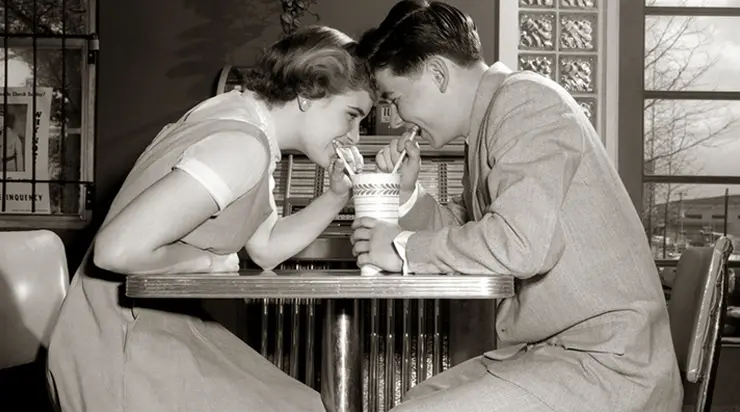First date: how to find out he’s right for you
A first date is sometimes like a job interview. In order not to fall flat on your face and to understand whether the game is worth the candle, we advise you to take on board the advice of experienced recruiters.
If you take a closer look, it becomes obvious that a first date and an interview for a new position are a bird of a feather. However, dating is, for certain reasons, a much more complicated “procedure.” Even if you are surrounded not by printers and scanners, but by the nice interior of a fashionable restaurant, you are between two fires, representing both the “employer” and the “potential candidate”. In a couple of hours you will have to show yourself in all your glory and inspect your interlocutor for the necessary skills.
Find out previous work experience
Just as an experienced employer, with his usual delicacy and meticulousness, finds out the details of previous work experience, so you should research a new interlocutor on the topic of his previous relationships. As in the first case, delicacy is the key to success. Of course, they won’t reveal all the ins and outs to you right away, but they will probably be happy to describe the main stages of your “career” to you. The latter will help you find out both the intentions of the interlocutor and their compliance with your requirements.
Attention: duration of the relationship, tone of memories, number of partners mentioned, reason for the end of the last relationship.
Identify strengths and weaknesses
An experienced recruiter knows that sometimes it is more important to know not a person’s strengths, but his weaknesses. The negative side sometimes tells a lot more than the positive side. Your task is to carefully ask your interlocutor about shortcomings. By the way, at this moment it is quite acceptable to talk about your little weaknesses.
After examining the disadvantages, do not forget to ask to talk about the advantages, because it is the positive qualities that attract us in people. If you have certain requirements for the personality of a potential partner (caring, ambition or generosity), do not hesitate to ask about it directly. Believe me, you will be surprised how much some people like to praise themselves (by the way, this is also worth paying attention to).
Attention: intensity of praise or blame, quantity and quality of pros and cons, compliance with your requirements.
Find out your education level
If you have more than one higher education behind you, and your candidate only has a school certificate, there is a chance that it will be difficult for you to get along together. This is not a decisive criterion, but certainly an important one. And let’s note that asking about education is one of the safest discussion points on our list, so feel free to start your date there.
Attention: the number (and quality) of educational institutions completed, the reason for this or that choice, attitude towards the education received, desire to study further.
Find out the reason for your interest
You definitely won’t go to an interview if there’s nothing that interests you about the position being offered. Of course, you may not be satisfied with the entire offer, for example, the proposed salary or the distance of the office from the city center, but still, something definitely attracted you. Likewise, a potential lover may not find you completely ideal, but still something prompted him to invite you to dinner? The right thing to do would be to ask your interlocutor what exactly he liked so much and for what reason. This way you can indirectly determine the intentions of the candidate for the “love of my life” position. The only thing is that you need to do this with the accuracy of a sapper, otherwise, at best, you will be suspected of lacking self-confidence.
Attention: purpose of meeting, qualities of interest.
Evaluate your degree of flexibility
Not physical, of course, but psychological. How easily does your interlocutor know how to find compromise solutions, is he ready to sacrifice his own rightness for the sake of the common good, is he able to give in, and what speaks more about him – weakness or resourcefulness? Conversation and analysis of potential situations will help answer these questions. Do not hesitate to ask to talk about previous communication experiences.
Attention: the degree of difficulty in making a decision, the desire to always be right, ultimatum or excessive compliance.
Assess the degree of openness
Perhaps one of the most important points. During the conversation, you need to evaluate how honest your interlocutor was in communication and whether he was pretending to be someone he is not. Finding out this will probably not be so easy, but this information can become a solid foundation in building a relationship with a potential partner. You can understand this only by relying on your own feelings.



